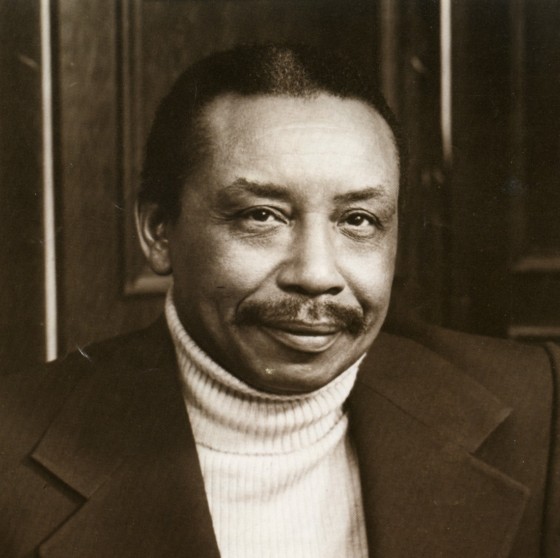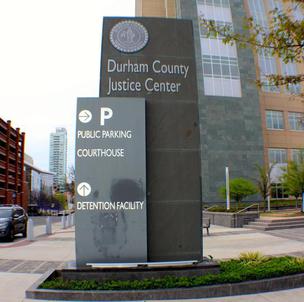"Providing a Broader Perspective of News and Information for the Triangle's Legal Community"
National Headquarters Disabled American Veterans (DAV)
Suspends Charter of Department of North Carolina (DAV),
Department Placed in Trusteeship -
4th District Committeeman for Department of North Carolina (DAV) and
Others Say "Race" is the Real Reason for Suspension
by Kelvin De'Marcus Allen
DURHAM, N.C. – National Headquarters Disabled American Veterans (DAV) recently suspended the charter of the Disabled American Veterans Department of North Carolina (DAV), and placed the organization under trusteeship. The National Headquarters DAV cited “hostilities which continue to exist between the leadership of the Department, it’s members, local chapters and the Department’s Executive Committee (DEC) is of great concern.” The letter dated June 1, 2020, is addressed to Linda S. Gibson, who is Black, and serves as the Commander for the Disabled American Veterans Department of North Carolina (DAV).
Disabled American Veterans (DAV) is a 501(c)(4) social welfare organization created by the United States Congress for disabled military veterans of the United States Armed Forces to assist disabled veterans and their families. With over 1 million members, the Disabled American Veterans Organization provides service free of charge, through a nationwide network of 88 DAV National Service Offices, 38 Transition Service Offices, 198 DAV Hospital Service Coordinator Offices, 52 state-level DAV Departments, 249 DAV VA Voluntary Service Representatives, and more than 1900 local DAV Chapters.
The June 1, 2020 letter also cites the National DAV’s Headquarters “concerns regarding the appropriate expenditure and/or allocation of Department and Service Foundation funds.” The letter is signed by Stephen Whitehead, National Commander, DAV National Headquarters. “The suspension of our charter came as quite a shock to a great many of us who are involved in leading the Disabled American Veterans Department of North Carolina,” said James R. Alston, 4th District Committeeman for DAV Department of North Carolina. Alston is a Vietnam Veteran with over 25 years of military service, and serves as the DAV Assistant Adjutant to National Commander for North Carolina.
“We are being accused of acting “unilaterally” in our decision making, yet the decision to suspend our charter and place our organization under trusteeship, is itself a unilateral act by DAV National Headquarters. Under Commander Gibson’s leadership, we have seen a steady increase in participation from a growing number of Black disabled veterans. In fact, it’s been my observation that as our Department membership configuration has increased in the number of Black members, white members from the Western part of the state have taken issue with most, or all of the initiatives our Executive Committee has put forward, Alston said.”
Ray Chambers, a retired Navy veteran and former federal law enforcement officer, is the elected Judge Advocate and Parliamentarian for DAV Department of North Carolina. Chambers believes racism is at the core of Commander Whitehead’s decision to suspend the Department of North Carolina’s Charter and place the Department under trusteeship.
“From the outset, I have said our suspension has more to do with race than anything else. Our white members that live in the western part of North Carolina have been against African Americans being in charge of our Department for years. It has come to a point that they have decided not to participate anymore,” Chambers says. “In the past, it was not unusual for us to have nine-hundred to a thousand members attend our conferences and conventions. However, over the last ten years, those numbers have dwindled. Now, we consider it a well-attended conference when one-hundred and sixty to one-hundred and seventy members show up,” said Chambers.
Chambers believes that when the demographic make-up of the Executive Committee in the Department changed from a majority of whites, to what is now an Executive Committee led by a majority of Blacks, DAV National Headquarters began to give ear to the complaints of the state’s DAV Chapter members in the western part of the state (who are white), and that’s where the problem began.
“The issue as I see it is, our largest chapters that have the most votes when we attend conferences and conventions are predominately Black. Over the last decade, the commanders have been predominately Black, but that wasn’t a problem before, because the other line officers were predominately white. However, over the last ten years, the line officers, including the commander have been predominately Black,” Chambers said.
Chaplain Connie Mercer, a long-time member of the DAV Department of North Carolina says that he and a number of Department of North Carolina members (predominately Black members) have tried to be diplomatic in their approach to responding to the National Headquarters’ suspension, but to date, being diplomatic has not served them well.
In a letter signed by 19 DAV Department of North Carolina DAV members to DAV National Headquarters, dated June 30, 2020, and addressed to DAV National Commander, Stephen Whitehead, members expressed their concerns regarding the abrupt suspension of the Department of North Carolina charter and subsequent placement into trusteeship.
The letter stated in part, “We as the elected and appointed leadership of the Department of North Carolina, want you to know that we are very displeased and surprised with the actions taken against the Department of North Carolina. To our knowledge, no duly constituted investigation or inquiry was conducted, nor was any member of the DEC allowed to present information in extenuation or mitigation of information presented from unknown individuals with the Department of North Carolina.”
“We tried addressing the matter to National Headquarters, and I believe with all my heart, what we got back was a canned response, or shall I say, a hurried response, in essence telling us that we, the Department of North Carolina DAV, is not in charge, and you (DAV Department of NC) are going to do what we tell you to do, or else,” Mercer explained.
Mercer goes on to say, that in his conversations with other DAV Department of North Carolina members regarding the Department’s charter suspension, the majority of Black members decided to take the route of diplomacy with National Headquarters, as to not be perceived as “playing the race card.” Still, the irony of recent national events centered on race, is not lost on Mercer. “There is something that strikes me as rather odd during this dispensation of time. We’re at the one hundred year anniversary of the DAV, and this is a time in history where we’re seeing magnificent changes throughout the world. It’s somewhat egregious to me, to see that for the first time in many, many years, we have people of color in leadership roles at the Department that are trying to address the systemic problems that they say we are having. Yet, attempting to get National Headquarters to point out specific behavior that would support the reasons for our Department’s suspension has been to no avail,” Mercer said.
Alston says he knows it’s going to be an uphill battle, as it is no small task going up against a national organization whose by-laws are stacked in favor of the national body. “It’s clear to me what we are facing here, and it is not going to be easy challenging an organization that was created by Congress, but is not held to the standards of our Constitution. Notice and an opportunity to be heard are hallmarks of our Constitution. Yet, National has set-up a system that leaves little, to no room, for legal redress. In my opinion, therein lies the hypocrisy, particularly, as it relates to Black people. Some of our white Department of North Carolina DAV members complained about our majority Black leadership, and just like that, our charter is suspended and we are placed under trusteeship. It’s systemic racism, plain and simple,” Alston said.
According to Glenn Harris, president of Race Forward and publisher of Colorlines, systemic racism is defined as "the complex interaction of culture, policy and institutions that holds in place the outcomes we see in our lives. Systemic racism prevents or makes it more challenging for people of color to participate in society and in the economy.
If you would like more information regarding this matter, and or an opportunity to conduct an interview with James R. Alston, Ray Chambers or Chaplain Connie Mercer, please contact Ron Allen at 919-451-7913, or email: allenron@msn.com.
Triangle Urban Law Journal - Copyright 2020 - A Beulah Project Initiative - www.beulahproject.org





